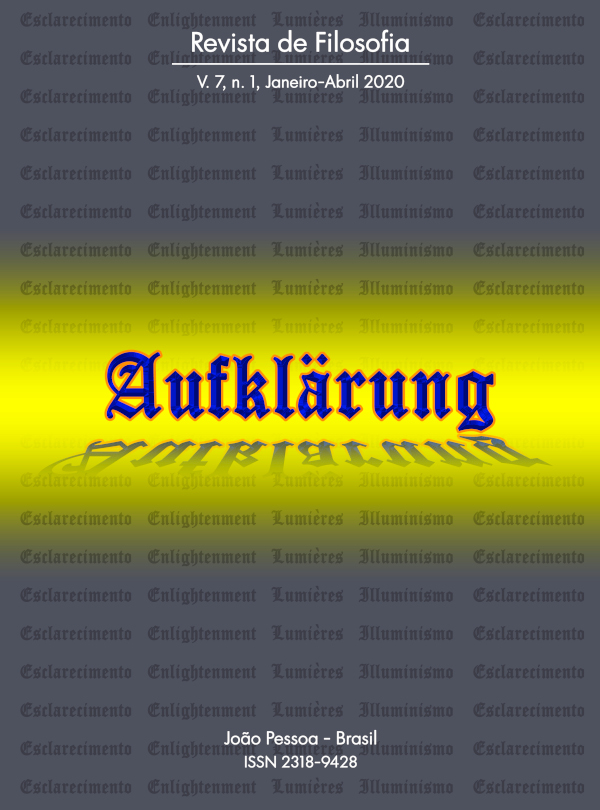The possibility of a "quantum ethics" from the thought of Amit Goswami
DOI:
https://doi.org/10.18012/arf.v7i1.49873Keywords:
Quantum ethics, Amit Goswami, Quantum consciousness, Ethical responsibilityAbstract
This research has as its theme the idealistic monistic philosophy of Amit Goswami that postulates Quantum Consciousness as a unifying principle and mediator of all reality in its manifold, manifested or potential. It is intended to answer the question about the possibility of a quantum ethics from the thought of Amit Goswami. For that, the epistemological relationship between "quantum creativity and quantum ethics" is presented; then "responsibility and quantum ethics"; without neglecting the "universal criteria of a quantum ethics"; finally, the relation between "quantum ethics and purpose". This research is justified by the fact that quantum physics is the theoretical basis for many technological inventions, and there are still not many philosophical studies that demonstrate the ethical implications of this technically successful science. The methodology used was a critical analysis of the main works of Amit Goswami, with O Universo Autoconsciente (2003) being the main source for offering the basic theoretical elements for understanding the researched topic, since in other works the author explores the fundamental concepts presented in it. It is hoped to show that by expanding a person's awareness, he can make choices with originality from a inviolate level, which is the quantum consciousness, becoming creative and responsible; the process of discovering self-consciousness as a self-referential unfolding of Consciousness, if applied to education, has a direct impact on the relationships between people, since they can be discovered as co-creators of reality because they perceive themselves as conscious observers with self-reference, Creativity can transform the world as they transform.
Downloads
Additional Files
Published
How to Cite
Issue
Section
License
Journal general policy
1.This journal works under a Creative Commons License aplied to online journals. That icence can be read in the following link: Creative Commons Attribution 4.0 International (CC BY 4.0).
2.Accordingly to this License, a)the journal declares that authors hold the copyright of their articles without restrictions, and they can archieve them as post-print elsewhere. b)the journal allow the author(s) to retain publishing rights without restrictions.
Metadata Policy for information describing items in the repository
1. Anyone may access the metadata free of charge at anytime.
2.The metadata may be re-used in any medium without prior permission, even commercial purposes provided the OAI Identifier or a link to the original metadata record are given, under the terms of a CC BY license refered for the Journal.







































